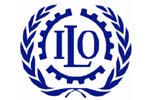ILO Meeting to discuss Changing Labour Force Requirements in the Electronic Components manufacturing sector
GENEVA (ILO News), Friday 13 April 2007 - More than 70 senior representatives of labour and employers organizations, along with governments, gather here on 16-18 April for the first major global tripartite discussion on emerging labour and social issues in the booming electronic components manufacturing sector that generates more than a trillion dollars in exports each year.
But this growth has also spawned a considerable number of social and labour challenges, including concerns over working conditions, wage levels, gender issues and management-labour relations, according to a new ILO report prepared for the meeting */.
The meeting will bring together representatives of the manufacturers, labour and governments for the first time to discuss these issues at such a high level and will be closely monitored by the information technology sector. Participants are expected to consider the role of social dialogue between workers and employers as well as what actions the ILO and its tripartite constituents can take regarding these issues.
The report also reviews the rapid growth in the sector which is larger than agriculture, textiles and clothing combined and acknowledges the role of governments in attracting multinational companies to provide foreign direct investment, generate employment, provide training and increase wages for more than 18 million workers in the global IT sector.
The electronic components sector annually produces millions of chips, semi-conductors, cell phones, flat screen televisions, compact disk and music players, flash memory cards and other basic electronic components. According to the ILO report, world exports of these products grew at an average rate of 2.7 per cent per year since 1995, reaching record levels in 2004.
Since 1996, exports of ICT goods have doubled and have grown at a faster rate than merchandise exports. Between 1996 and 2003 merchandise exports increased by 60 per cent, while exports of ICT goods increased by 100 per cent. In 2003, exports of ICT goods exceeded $1.1 trillion, accounting for 15 per cent of world merchandise exports.
While the USA and Japan were the major exporters until/through 2003, China now leads in terms of employment - which reached over 6 million in 2005 - and exports, which were worth US$62.5 billion in 2003. This growth was due mainly to investment by foreign multinationals, the report says.
Other major developing country or industrialising economies exporters include Hong Kong (China), Singapore, Republic of Korea, Taiwan (China), Malaysia, Mexico, the Philippines, Thailand and Indonesia. European players include: Germany, Netherlands, United Kingdom, France, Ireland, Italy, Belgium, Hungary, Finland, Sweden, Spain and Austria. Taken altogether, they account for a quarter of world exports.
The report also shows the enormous amount of training companies must provide to create the workforce required for their operations. It says that formal education and training systems alone are unable to respond quickly enough to rapid changes in skills requirements.
The new ILO report also looks at corporate social responsibility and voluntary initiatives adopted by many multinational companies and industry groups in response to concerns regarding labour and social issues.
"The lower end of the value chain is of particular importance when we consider the labour and social challenges arising from participation in global production systems, and especially from the operations of multinational enterprises", ILO IT expert Paul Bailey said.
The Global e-Sustainability Initiative (GeSI) and the Electronics Industry Code of Conduct (EICC), which most of the industry's computer and telecom giants, explore ways in which ICT sector companies can collaborate so as to manage social and environmental issues in their supply chains more effectively.
GeSI has established a close working relationship with other voluntary industry initiatives, including the Electronics Industry Code of Conduct (EICC) group. The group consists of 26 companies that have come together to ensure that working conditions in the electronics industry supply chain are safe, that workers are treated with respect and dignity and that manufacturing processes are environmentally responsible.
See our feature story on Corporate social responsibility in the IT sector: http://www.ilo.org/public/english/bureau/inf/features/it_sector.htm
__________
*/ The production of electronic components for the IT industries: Changing labour force requirements in a global economy. Report for discussion at the Tripartite Meeting on the Production of Electronic Components for the IT Industries: Changing Labour Force Requirements in a Global Economy, International Labour Office, Geneva, 2007.
- 2025.10.01HVG Állásbörze 2025 Toborozz országosan 3 nap alatt - online, foglalj virtuális standot!
Részletek
Jegyek
- 2025.10.07Óbudai Egyetem Állásbörze Jöjjön el, legyen kiállító! Kerüljön közvetlen kapcsolatba tehetséges, frissen diplomázó vagy végzős hallgatókkal, akik készen állnak a szakmai pályafutásuk elindítására. Akik naprakészen ismerik a legújabb technológiákat, elméleteket és iparági trendeket.
Részletek
Jegyek
- 2025.10.14Műegyetemi Állásbörze A Műegyetemi Állásbörze Budapest legnagyobb és legrangosabb álláskereső rendezvénye. 1995 óta képez hidat a munkaadók és potenciális munkavállalóik között. Rendezvényről rendezvényre több újítással, színesebb programokkal, felméréssel és számos csatornával is találkozhatnak az érdeklődők.
Részletek
Jegyek
- 2025.10.21Pannon Állásbörze 2025. A Pannon Állásbörze – ahol a jövő szakemberei és a legjobb munkaadók találkoznak
Részletek
Jegyek
A NAV több vármegyében is ellenőrzi a strandokat. Többek között az alkalmazottak bejelentését is vizsgálják majd. Teljes cikk
Dupla béremelést kapnak a kormánytisztviselők: szeptembertől és januártól összesen 30 százalékkal nőhet a fizetésük – jelentette be Navracsics... Teljes cikk
A Nemzetgazdasági Minisztériumtól (NGM) hamarosan a kormány elé kerülhet Magyarország megújított Mesterséges Intelligencia Stratégiája - mondta a... Teljes cikk




 HR standup - Litkai Gergely: Személyzeti ügyek
HR standup - Litkai Gergely: Személyzeti ügyek